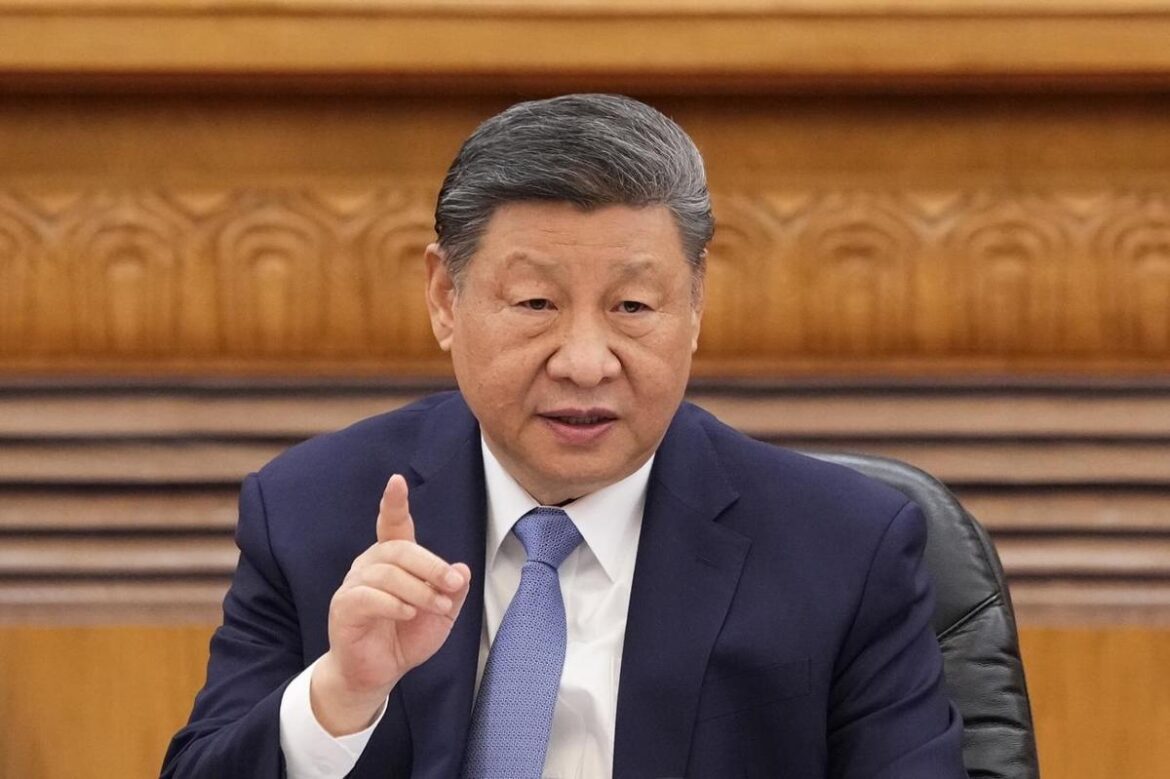Xi Jinping Sparks Speculation by Delegating Powers: Is a Retirement on the Horizon?
Power in China has rarely shifted without drama — and something unusual is happening now. A recent leadership meeting chaired by Chinese President Xi Jinping has triggered ripples of speculation about the future of his authority, with some suggesting he may be preparing to step back for the first time in over a decade.
For a man widely considered the country’s most powerful leader since Mao Zedong, the quiet signs of stepping back seem almost… uncharacteristic. And yet, it’s what many are reading between the lines of a potential power realignment brewing inside the Chinese Communist Party (CPC).
Timeline of Events: What Triggered the Rumors?
Talks began to surface in early July — right after it was revealed that Xi Jinping had assigned more responsibilities to key organs within the ruling CPC. The shift wasn’t subtle. It came during a critical June 30 meeting of the 24-member Political Bureau, also known as the Politburo.
According to China’s state-run Xinhua news agency, this meeting reviewed and approved new regulations that deal with the “decision-making, deliberative, and coordinating” duties of the CPC Central Committee. And notably — Xi himself chaired the meeting.
While on paper it’s about improving governance, the move is also being interpreted as Xi entrusting others with decision-making power — something that simply hasn’t happened under his 12-year rule.
- May 21 – June 5: Xi makes no public appearances, sparking online speculation.
- June 30: Xi chairs Politburo meeting that outlines decentralization of certain responsibilities.
- July 6: Xi skips the BRICS summit in Rio de Janeiro — a first since taking office.
Missing From the Spotlight
What added to the growing speculation was Xi’s absence from key events. His no-show at the BRICS summit in Brazil, held beginning July 6, caught analysts off guard. For a leader who has consistently used international events to reinforce his authority, the absence raised eyebrows. Especially since this is reportedly the first time he has skipped BRICS since assuming office.
Official Statements and What They Might Mean
In statements made during the high-level June 30 Politburo meeting, Xi emphasized that the newly proposed regulations would help “standardise the establishment, responsibilities, and operations” of various CPC institutions. It sounded procedural. Yet, to experts, the subtext spoke volumes.
“It does seem that Xi might pay less attention to day-to-day details, which necessitates a policing mechanism to ensure that his policy priorities are still being carried out by lower-level officials,” said Victor Shih, specialist in Chinese elite politics at UC San Diego, in an interview with South China Morning Post.
Shih’s point touches a nerve. During his tenure, Xi centralized power to a level not seen since Mao’s era. So when he starts talking about standardizing responsibilities — and then delegates them — it sounds less like bureaucracy and more like a signal.
Past Precedents vs. Now
The structure of the Chinese leadership doesn’t naturally lend itself to voluntary transitions. Previous leaders bowed out only after terms expired, and even then, with resistance. Xi amended the constitution in 2018 to remove term limits, suggesting an intent to stay indefinitely. So why this now?
It’s hard to say definitively. But the idea of an orderly transition — a rare notion in Chinese politics — may be gaining traction simply because the stakes for missteps are too high in today’s China.
Expert Reactions: Insight or Guesswork?
There are more questions than answers. And in the absence of a transparent political system, informed guesswork fills the space.
Some Asia analysts argue that Xi could simply be clearing space to manage macro policy concerns — particularly in light of challenges like a slowing economy and strained U.S.–China relations. Others suggest he might be paving the way for a transition, possibly unveiling plans fully during the CPC’s next five-year congress in 2027.
Up until recently, everyone assumed that the 2027 congress would be an event focused on succession questions. What’s shifting here is that those questions might already be in motion, behind closed doors.
Community Response: What Are People Saying?
Reactions vary — softly, at first. Inside China, public commentary on Xi’s leadership remains closely managed. Still, some online chatter hints at curiosity and cautious optimism. Outside China, political observers and Chinese diaspora forums have lit up with debates and theories.
- Some praise the move as maturity in governance.
- Others worry it could create confusion down the ranks.
- Many remain skeptical until there’s something definitive.
One user commenting on a Hong Kong-based news portal put it simply: “Xi doesn’t vanish or delegate without a reason. The question is what the reason is — and when we’ll be allowed to know it.”
What’s Next for Xi Jinping?
It’s hard to draw straight conclusions from underground currents. Power doesn’t evaporate; it morphs, shifts — sometimes disappears quietly. If Xi Jinping is indeed preparing for something bigger or stepping back from day-to-day governance, expect more moves like these regulatory meetings and selective public appearances.
We might be seeing a new stage of his rule. Or the early outlines of its final chapter. Either way, one thing remains likely — any full retirement, should it happen, won’t be sudden. It will come slowly, with steps like this one as subtle indicators.
For now, all eyes are on the CPC’s preparation for 2027. Until then, clues lie in absences, in amended rules, and in the spaces Xi chooses not to tread anymore.
So watch that space, and pay attention to what doesn’t get said. Oftentimes, that’s where the real truth sits quietly, waiting.

